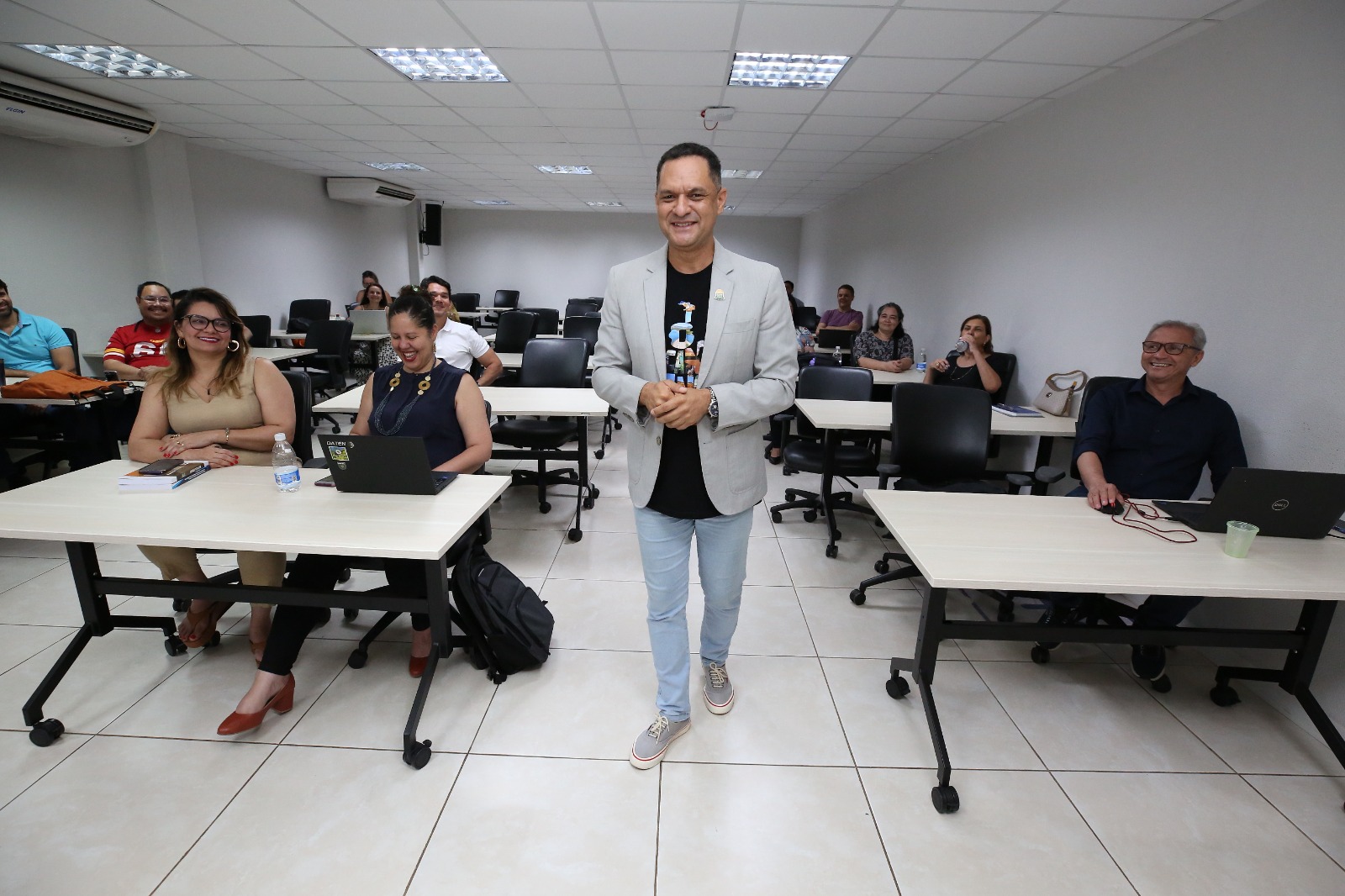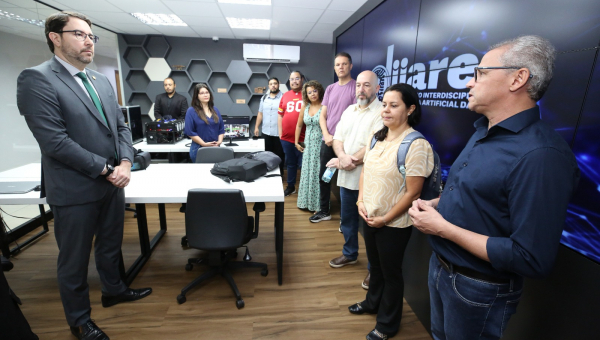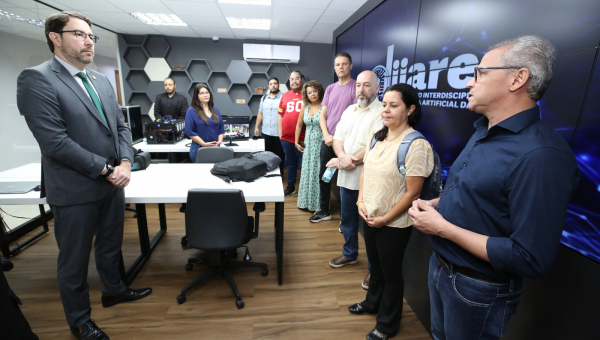
The Superior School of the Judges of the State of Tocantins (Esmat) received, on Thursday morning (October 9th), the technical visit of twenty doctoral students of the Post Graduate Program in Digital Transformation and Governance (PPGGTD), a group of the Ministry of Education (MEC), from the city of Brasilia.
During the visit, the participants were received at the Interdisciplinary Laboratory of Artificial Intelligence (LIIARES), where they could get to know the projects under development, as well as the structure of the Publishing, Library and Studio of Esmat. In testimonials, the doctoral students highlighted the receptivity of the team and the quality of the work presented. "They inspire us for other projects," commented one of the visitors.
In welcoming the participants, Judge Roniclay Alves de Morais, deputy director of the Council for Superior Studies and Scientific Research at Esmat, highlighted the importance of convergence among technology, justice and education.
For the course coordinator, Professor Gentil Veloso, Esmat is a reference in the state of Tocantins for its joint work with the Federal University of the state of Tocantins (UFT) and investment in projects related to artificial intelligence and high-level training.
“This agreement provides a technical visit to the city of Palmas to know the university, attend some classes and also know the reality of the state of Tocantins from a technological point of view and education. We understand that Esmat is a partner of ours who has developed this work with the UFT (Federal University of the state of Tocantins) and it would be an important place for them to know", pointed out.
In her testimony, doctoral student Nastassja Lopes Silva Néto highlighted the importance of integration among universities, public bodies and applied research centers as a way to strengthen digital governance. "The technical visit provided an exchange of experiences between the servers of MEC and the Esmat team, favoring reflections on possibilities for inter institutional cooperation and on the role of emerging technologies in the modernization of the public sector. The activity also reinforces the importance of integration among universities, public bodies and applied research centers as a strategy for strengthening digital governance in Brazil"
In addition to the technical visit, the doctoral students participated in a class of the optional discipline Public Policy Evaluation, taught by Professor Adão Francisco de Oliveira. The proposal was to approach theory and practice from the analysis of projects focused on technology, education and institutional innovation.

With emphasis on public policy evaluation models, especially in primary assistance and public health, the discipline also addresses the design of indicator systems, qualitative methods and impact measurement strategies in different social contexts.




_thumbnail_thumbnail.jpeg)
_thumbnail_thumbnail.jpeg)
_thumbnail_thumbnail.jpeg)

_thumbnail.jpeg)
_thumbnail.jpeg)
_thumbnail.jpeg)

